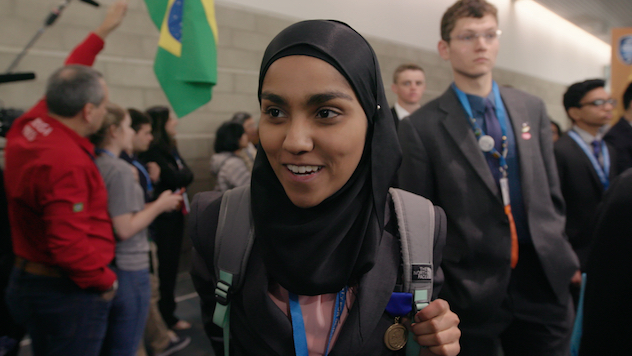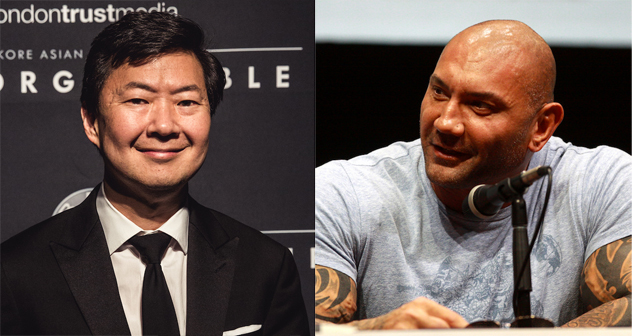Imagine a sea of anxious, sweaty teenagers thirsting for recognition. The best and brightest STEM minds from all around the world make the term “Nerd Olympics” sound like an understatement. And with a massive $75,000 best-in-fair prize and admission into the elite world of celebrity scientists, the stakes are high.
For the entertaining and suspenseful documentary “Science Fair,” filmmakers Cristina Constantini and Darren Foster followed a handful of promising students competing for Intel’s International Science and Engineering Fair, affectionately known as ISEF. While Constantini, herself a past winner of ISEF, and Foster, a seasoned documentarian, excel in portraying their epic quests, the movie glosses over some of the actual science projects, which left me wondering how exactly they worked.
For example, the most endearing character is Kashfia, a mild-mannered, hijab-sporting Pakistani American girl who toils stoically in the school library, quietly racking up ISEF victories with zero acknowledgement from her football-obsessed South Dakota high school. She tries to explain how her project can measure the brain waves of risk-taking teenagers to her coach, but he can’t follow. And neither can we.
Then there’s Robbie, an eccentric artificial intelligence expert who is so off-the-charts gifted that his grades suck and he can’t seem to get acceptance to any of the 12 colleges he applied to. And yet his research is so cutting-edge and creative that he secures a paid internship at a Silicon Valley self-driving car startup. His superpower is that he can teach his computer to analyze Kanye West lyrics and then create its own in the same style. How does he do it? Constantini and Foster opt not to get too granular with any explanations.
They know their audience, who are probably not as scientifically minded as their documentary subjects. Instead, they choose to zoom in on their compelling backstories. Ambitious and relentless, Anjali is a 14-year-old with grit that would make any tiger mom drool. She’s developing an arsenic-testing device that could make water safer to drink, especially in the developing world. Her unwavering self-confidence is intimidating, but you find yourself rooting for her when she falls ill, just before judging, but she forges ahead optimistically.
The timing of “Science Fair” couldn’t be better, as many in the U.S. seem to regard education and science with suspicion. But the movie (thankfully) peers beyond labyrinthine calculus problems, incomprehensible lab experiments and impenetrable computer theorems. Instead, Constantini and Foster travel all over the world to portray the hearts and minds of the brilliant kids themselves, their adolescent quirks, their obsessions and their prodigious gifts that will ultimately save the world — with the right support.
This article appears in KORE’s October 2018 issue. Subscribe here.







